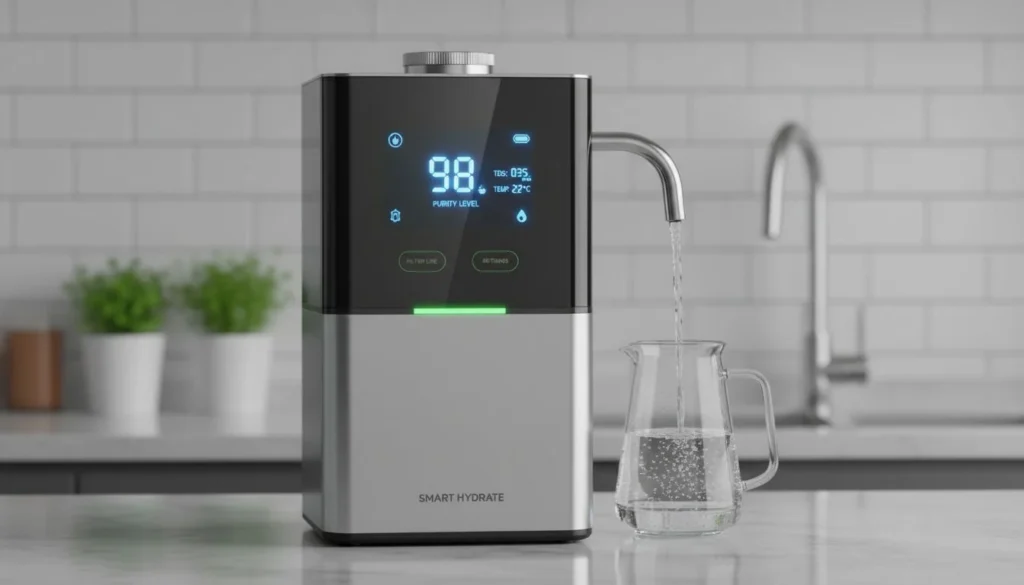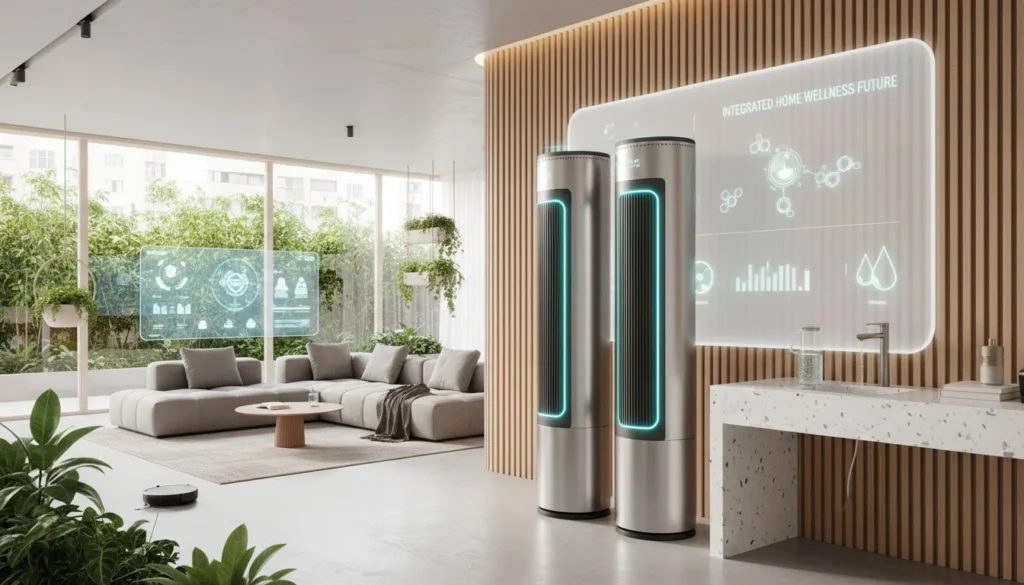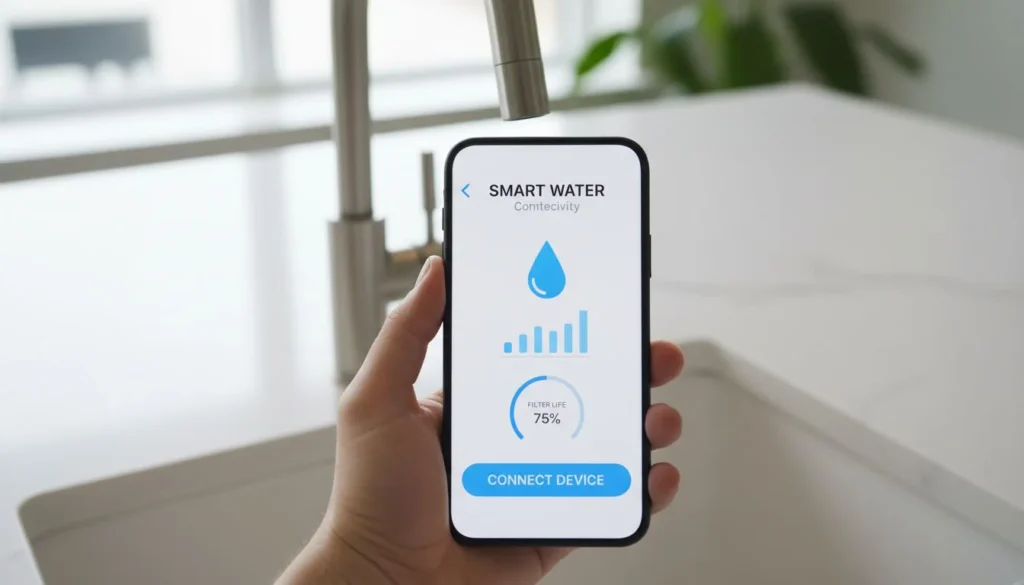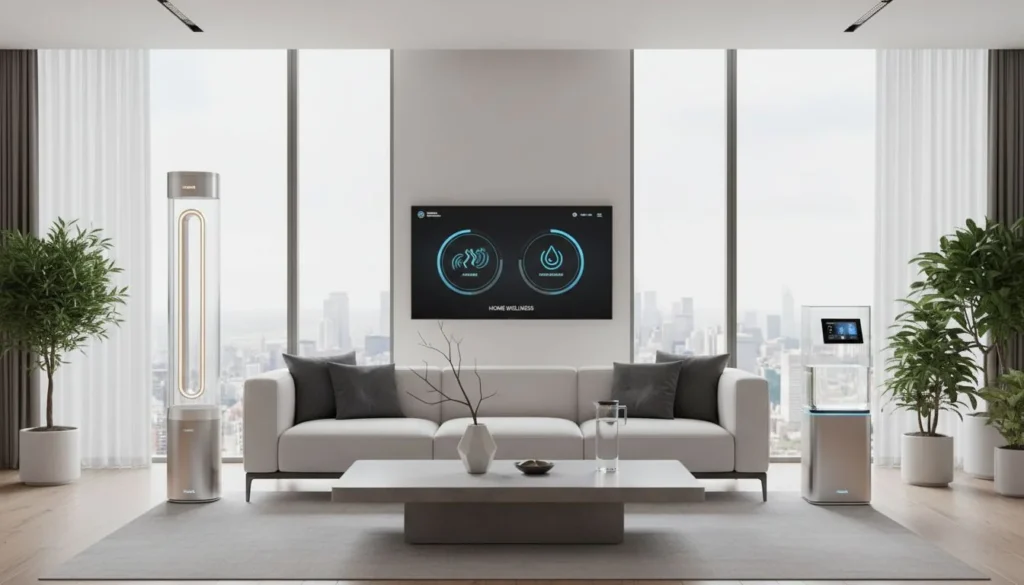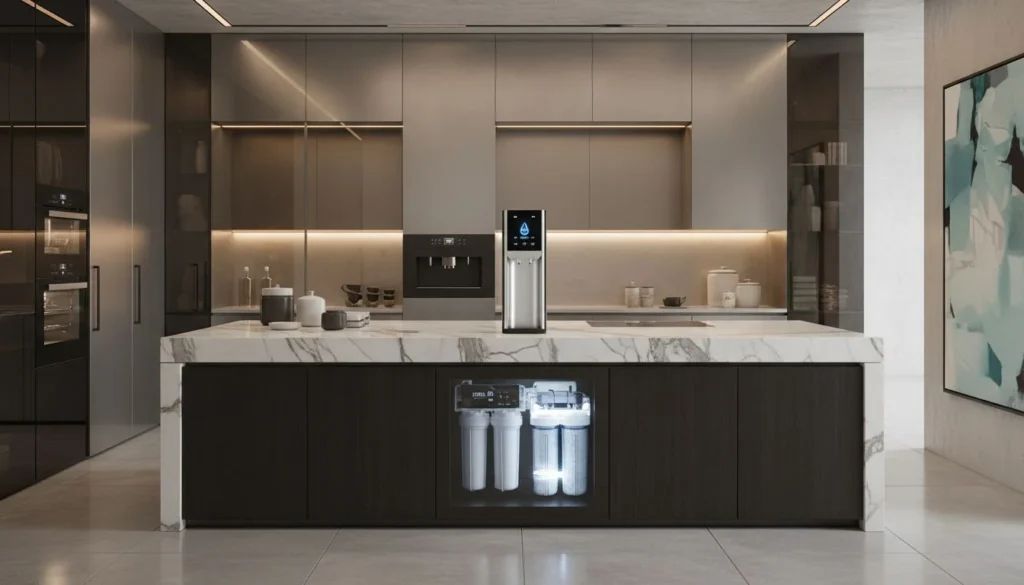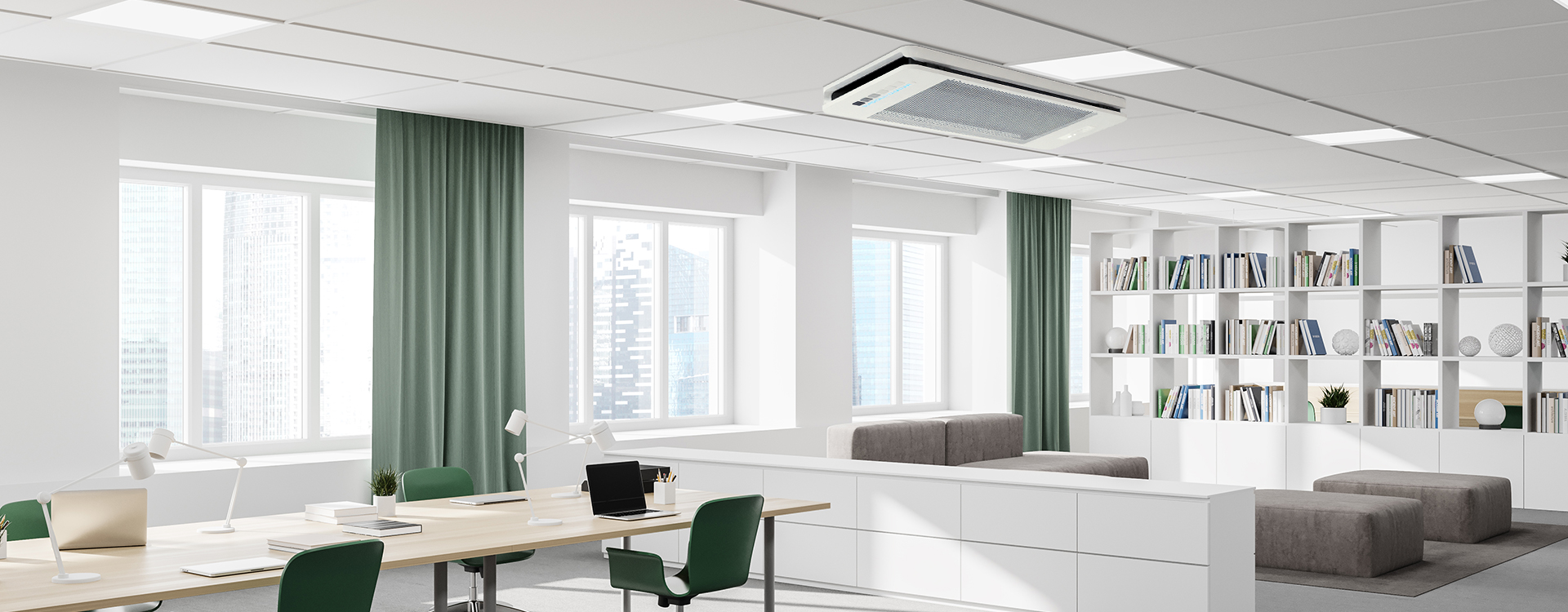
넓고 채광이 좋은 사무실에 히어에어 천정형 공기청정기를 설치하여 공기질을 개선했습니다.
소개
HEPA 필터는 공기 중 입자를 포집하고 다양한 환경의 공기질을 개선하는 공기 정화용으로 널리 사용되고 있습니다. 하지만 HEPA 필터가 효과적인 이유는 무엇이며, 모든 유형의 공기 정화 요구에 가장 적합한 옵션일까요?
대기 오염은 실외에서만 문제가 되는 것이 아니라 실내 공기질도 건강에 큰 영향을 미칩니다. HEPA 필터는 먼지, 알레르겐, 박테리아, 심지어 바이러스와 같은 입자를 포집하는 데 있어 입증된 효율성으로 인해 공기청정기의 필수품이 되었습니다. 가정, 학교, 병원, 사무실 등에서는 청결한 실내 환경을 유지하는 데 있어 신뢰성과 효과가 뛰어나 널리 사용되고 있습니다.
고효율 미립자 공기 필터의 약자인 HEPA 필터는 0.3마이크론 크기의 입자를 99.97% 포집하여 먼지, 꽃가루, 애완동물 비듬은 물론 일부 박테리아와 바이러스까지 포집하여 더 깨끗한 공기를 제공하는 것으로 알려져 있습니다. 높은 효율성으로 주거 및 상업 환경 모두에서 신뢰할 수 있는 솔루션으로, 가장 필요한 곳에 필수적인 공기질 개선 효과를 제공합니다.
HEPA 필터는 다양한 환경에서 매우 효과적이며 0.3마이크론 크기의 입자를 99.97%까지 포집할 수 있습니다.True
HEPA 필터는 효율성이 높아 가정, 학교, 병원, 사무실 등에서 공기질을 개선하기 위해 일반적으로 사용됩니다.
HEPA 필터 공기청정기가 고객님의 공간에 가장 적합한 선택인지 궁금하다면 HEPA 필터가 어떻게 작동하는지, 다른 여과 기술과 어떻게 비교되는지, 다양한 설정에 어떤 고유한 이점을 제공하는지 자세히 살펴보세요.
HEPA 필터란 무엇인가요?
HEPA(고효율 미립자 공기) 필터는 99.97%의 0.3 미크론 크기의 입자를 걸러내도록 설계되었습니다. HEPA 여과 효율1먼지, 꽃가루, 애완동물의 비듬, 특정 박테리아 및 바이러스를 포함합니다. 이 수준의 필터링은 가정, 병원, 사무실 등 높은 공기질 기준이 필요한 환경에 이상적입니다.
HEPA 필터가 깨끗한 공기를 위해 매우 효과적인 이유
HEPA 필터는 작은 입자를 포집하는 데 탁월하여 더 깨끗하고 건강한 실내 환경을 제공합니다. 일반적인 실내 알레르겐과 오염 물질을 줄여주기 때문에 알레르기가 있거나 호흡기에 민감한 사람에게 특히 유용합니다.
HEPA 필터는 공기 중 오염 물질을 어떻게 포집하나요?
HEPA 필터는 차단, 충격, 확산 등 다양한 여과 메커니즘을 통해 입자를 포집하는 촘촘한 섬유 네트워크로 구성되어 있습니다. 공기가 필터를 통과할 때 이 섬유는 크고 작은 입자를 모두 걸러내어 높은 수준의 공기 청정도와 품질을 보장합니다.
예, HEPA 필터는 의료 시설에 적합합니다.True
HEPA 필터는 효율이 높기 때문에 의료 환경에서 오염 물질이 없는 공기를 보장하기 위해 자주 사용됩니다.
공기청정기에 HEPA 필터가 효과적인 이유는 무엇인가요?
HEPA 필터는 광범위한 공기 중 입자를 포집할 수 있는 독특한 설계로 인해 매우 효과적입니다. 의료 시설과 같이 민감한 환경에서는 이러한 효율성이 안전하고 깨끗한 공기질을 유지하는 데 매우 중요합니다.
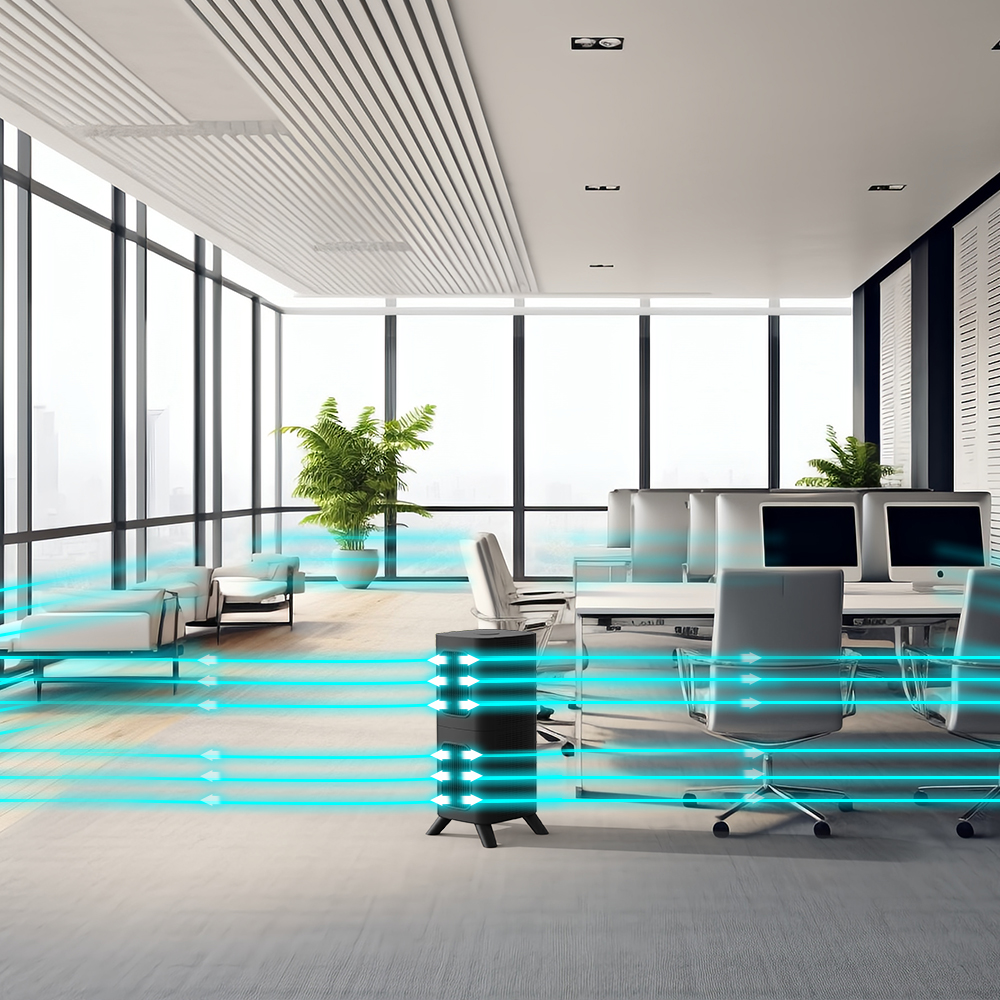
사무실 공간에 HEPA 필터가 설치된 공기청정기 장치
HEPA 필터의 기능 이해
HEPA 필터는 공기를 미세한 그물망을 통과시켜 기존 필터보다 유해한 입자를 더 효과적으로 포집하는 방식으로 작동합니다. HEPA 필터의 의료용 사용2. 이 필터는 공기청정기 내에서 지속적으로 작동하여 사용하는 모든 공간에서 높은 수준의 공기 청정도를 유지합니다.
HEPA 필터의 장점은 무엇인가요?
HEPA 필터의 구조는 0.3마이크론의 작은 입자까지 포집할 수 있어 알레르겐, 먼지, 병원균 등 일반적인 실내 오염 물질에 대해 매우 효과적입니다. 이 기술은 낮은 수준의 오염 물질을 유지하는 것이 중요한 환경에서 필수적인 기술입니다.
HEPA 필터와 다른 여과 기술은?
HEPA 필터는 이온 발생기, 플라즈마 필터, 자외선 등 다른 공기 정화 기술과 비교했을 때 어떤 차이가 있나요? 각 기술에는 장단점이 있지만, HEPA 필터는 인체 건강에 더 안전하고 신뢰할 수 있는 선택이라는 점에서 두드러집니다.
HEPA와 다른 필터의 주요 차이점
부산물로 오존을 생성할 수 있는 이온화 및 플라즈마 기술과 달리 HEPA 필터는 유해한 배출물을 방출하지 않고 입자를 포집하므로 실내 공기질 개선에 선호되는 선택입니다.
HEPA 필터는 계속 사용해도 안전한가요?
이온화 및 플라즈마 기술은 이온 또는 반응성 입자를 방출하여 호흡기 자극 물질인 오존을 생성할 수 있습니다. 이온화 여과의 위험성3. HEPA 필터는 입자를 물리적으로 포집하여 이러한 문제를 방지하므로 가정, 학교 및 직장에서 지속적으로 사용하기에 더 안전한 옵션입니다.
HEPA 필터는 VOC와 같은 가스를 포집할 수 있습니다.False
HEPA 필터는 가스나 냄새가 아닌 입자를 포집하도록 설계되었으며, VOC에는 활성탄 필터가 필요합니다.
필터링 기술 비교
다음은 다양한 필터링 기술을 간단히 비교하여 각 기술의 강점과 최상의 애플리케이션을 강조한 것입니다:
| 필터링 기술 | 효율성 | 부산물 | 일반적인 애플리케이션 | 주요 이점 | 제한 사항 |
|---|---|---|---|---|---|
| HEPA 필터 | 높음 | 없음 | 가정, 병원, | 99.97%의 입자를 제거합니다. | VOC와 같은 가스를 제거하지 않습니다.4 |
| 사무실 | 0.3 미크론까지 | ||||
| 활성탄 | 보통 | 없음 | 공기청정기, HVAC | VOC, 악취 흡착 | 미립자에는 덜 효과적 |
| 이온 발생기 | 보통 | 오존 | 산업, | 알레르기 유발 물질 및 입자 감소 | 오존은 호흡기를 자극할 수 있습니다. |
| 공기 청정기 | |||||
| UV-C 빛 | 변수 | 없음 | 병원, 실험실, | 박테리아 및 바이러스 제거 | 입자에 대한 제한된 효과 |
| 공기 청정기 | |||||
| 플라즈마 기술 | 높음 | 오존 | 산업 | 살균에 효과적 | 반응성 파티클 생성 |
HEPA 필터의 이상적인 용도
HEPA 필터는 적응성이 뛰어나 가정, 사무실, 의료 시설 등 다양한 환경에서 사용할 수 있습니다. 특히 알레르겐과 병원균을 줄이는 데 효과적이어서 보다 건강한 실내 환경을 조성할 수 있습니다.
HEPA 필터의 최대 수혜자는 누구인가요?
HEPA 필터는 의료 시설, 학교, 알레르기에 민감한 사람이 있는 가정 등 높은 공기 청정도가 필수인 환경에서 가장 유용합니다.
HEPA 기술의 세부 적용 분야
HEPA 필터는 미세 입자를 포집하여 알레르겐과 병원균을 줄여주므로 가정, 사무실 및 병원에 이상적입니다. 가장 필요한 곳에 신뢰할 수 있는 공기질 솔루션을 제공합니다.
HEPA는 무엇을 의미하나요?
HEPA 또는 고효율 미립자 공기는 0.3마이크론 이하의 입자를 99.97%까지 제거하는 표준화된 여과 수준으로, 더 건강한 실내 환경을 조성하는 데 기여합니다. HEPA 및 VOC 여과4.
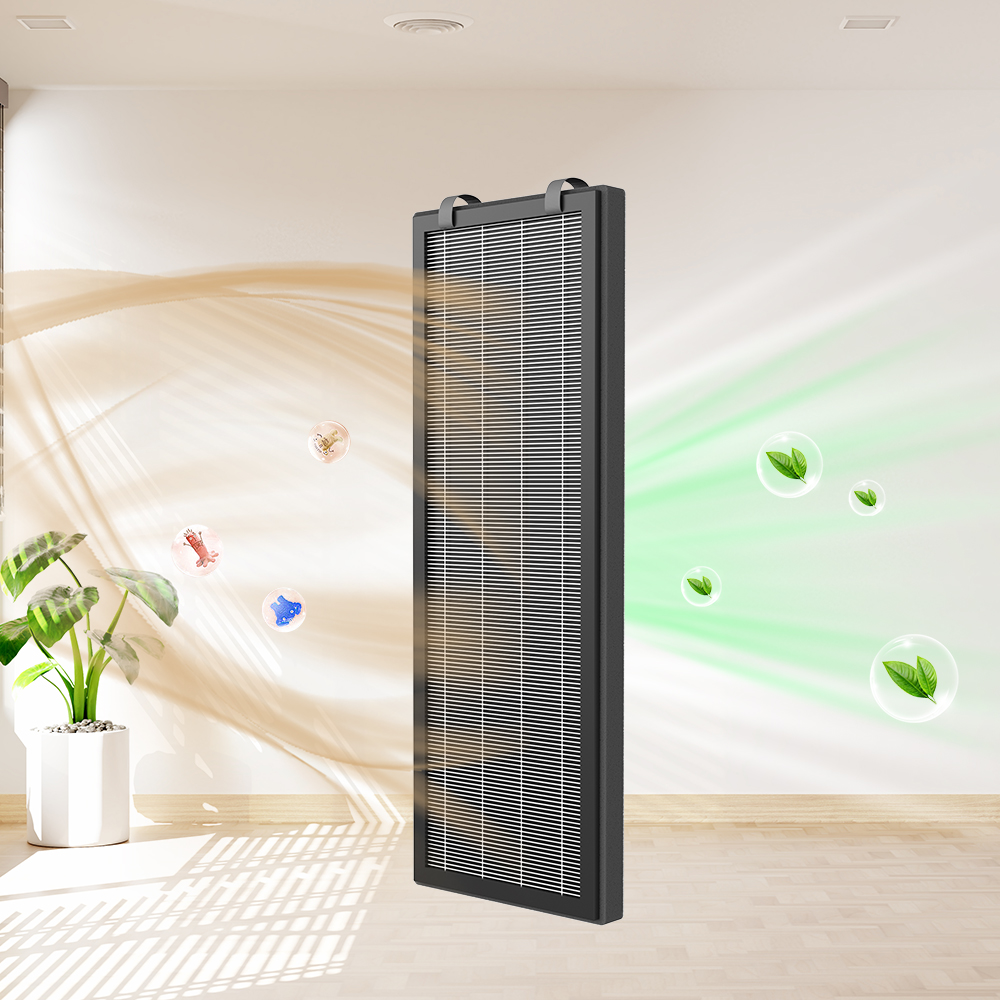
히소에어 헤파 필터 공기청정기 교체하기
HEPA 기술의 기원과 발전
제2차 세계대전 당시 미군이 방사성 입자를 걸러내기 위해 처음 개발한 HEPA 기술은 상업용 및 주거용 공기 정화에 필수적인 요소로 발전했습니다. 오늘날의 HEPA 필터는 저항을 줄이면서 향상된 공기 흐름을 제공합니다.
HEPA 필터의 역사적 발전
원래 군사용으로 설계된 HEPA 필터는 이후 가정과 직장을 비롯한 현대 환경의 고효율 필터링 요구 사항을 충족하도록 조정되었습니다.
HEPA 기술의 최신 발전
최신 HEPA 필터는 높은 공기 흐름과 낮은 저항을 허용하는 고급 미디어를 통합하여 오늘날 사용되는 공기 청정기에서 더 조용하고 효율적으로 작동합니다.
HEPA 필터에 카본 필터가 필요한 이유는 무엇인가요?
HEPA 필터는 입자 포집에 탁월하지만 가스나 냄새를 제거하지는 못합니다. 활성탄 필터는 휘발성 유기 화합물(VOC)과 불쾌한 냄새를 흡착하여 HEPA 필터를 보완합니다.
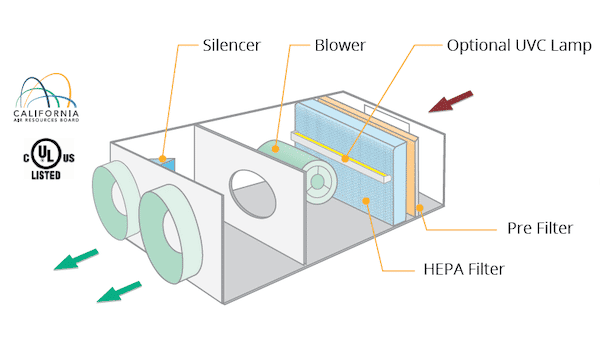
필터 기반 공기청정기의 다이어그램
이중 필터를 통한 포괄적인 필터링
HEPA와 활성탄 필터를 함께 사용하면 입자와 가스를 모두 제거하여 종합적인 공기 정화를 보장합니다. 이 이중 접근 방식은 VOC가 우려되는 환경에서 특히 효과적입니다.
HEPA 필터와 탄소 필터를 함께 사용할 때의 이점
입자와 기체 오염 물질이 모두 있는 공간에서 HEPA 필터와 탄소 필터를 결합하면 더 넓은 범위의 오염 물질을 처리하는 완벽한 공기 정화 솔루션을 제공할 수 있습니다.
공기청정기 HEPA 필터의 장점
HEPA 필터는 장기적인 공기질 개선을 위한 매우 효과적이고 유지 관리가 적은 옵션입니다. 오염 물질을 줄이고 모든 실내 환경에서 향상된 공기질을 제공합니다.

거실의 정수기
HEPA 필터가 가정과 업무 공간에 이상적인 이유
HEPA 필터는 알레르기 유발 물질, 먼지, 반려동물의 비듬을 줄여 실내 공기를 더 깨끗하고 건강하게 만들어줍니다. 유지 관리가 필요하지 않아 장기간 사용하기에도 편리합니다.
오래 지속되고 효율적인
HEPA 필터는 사용량에 따라 6~12개월에 한 번씩만 교체하면 됩니다. 내구성과 효율성이 뛰어나 지속적인 공기질 관리를 위한 비용 효율적인 선택이 될 수 있습니다.
결론
HEPA 필터는 미세 입자를 포집하여 실내 공기질을 개선하고 더 깨끗하고 건강한 환경을 보장하는 입증된 솔루션입니다. 군대에서 처음 개발된 HEPA 필터는 안전성, 신뢰성, 지속적인 발전 덕분에 가정, 직장, 의료 시설에서 공기 정화를 위해 선호되는 선택입니다.


